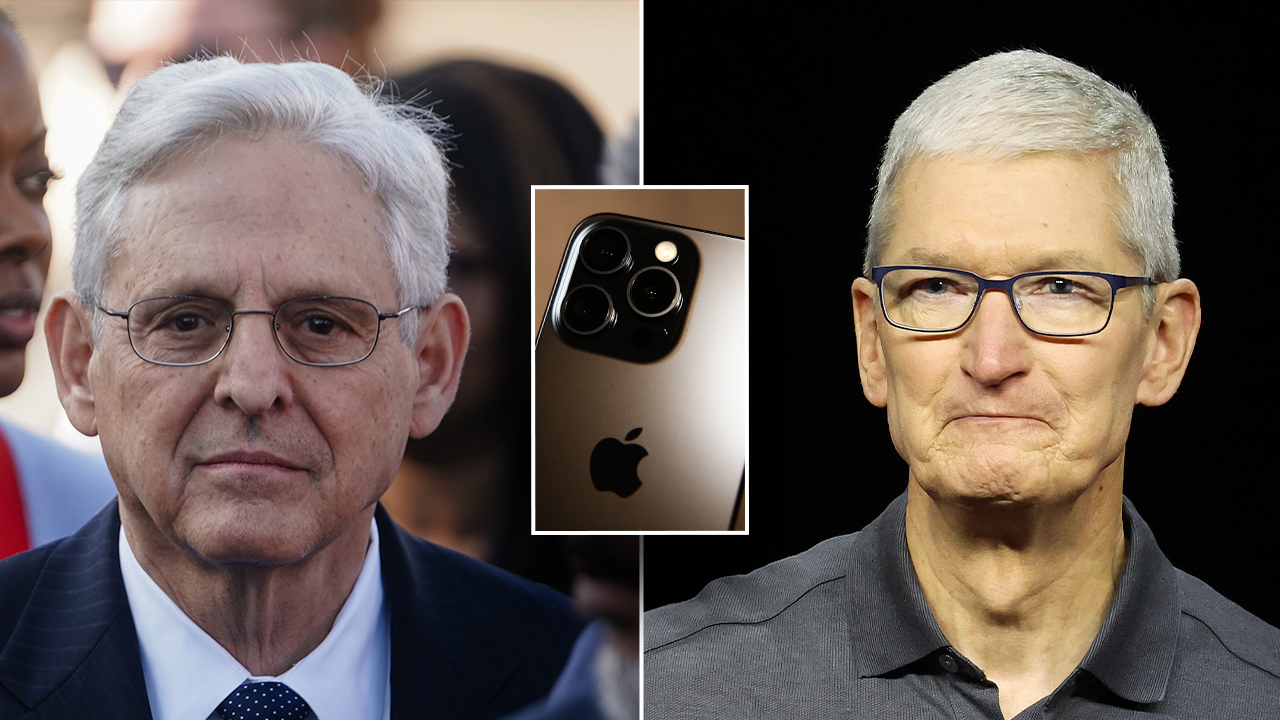The Department of Justice is suing Apple over allegations of violating antitrust law.
Attorney General Merrick Garland and other top DOJ officials are set to make an announcement later Thursday. The lawsuit, which the department said was filed in the U.S. District Court for the District of New Jersey, targets Apple’s grip on the smartphone market, according to a press release from the DOJ.
“Consumers should not have to pay higher prices because companies violate the antitrust laws,” Garland said in a statement. “We allege that Apple has maintained monopoly power in the smartphone market, not simply by staying ahead of the competition on the merits, but by violating federal antitrust law. If left unchallenged, Apple will only continue to strengthen its smartphone monopoly.
“The Justice Department will vigorously enforce antitrust laws that protect consumers from higher prices and fewer choices. That is the Justice Department’s legal obligation and what the American people expect and deserve,” he added.
APPLE ESCALATES EPIC GAMES FEUD BY BLOCKING FORTNITE APP IN EU
The DOJ lawsuit alleges that Apple has blocked innovative apps, suppressed mobile cloud streaming services, excluded cross-platform messaging apps, diminished functionality of non-Apple smartwatches and limited third-party digital wallets.
Apple pushed back on the lawsuit in a statement to FOX Business.
“At Apple, we innovate every day to make technology people love—designing products that work seamlessly together, protect people’s privacy and security, and create a magical experience for our users. This lawsuit threatens who we are and the principles that set Apple products apart in fiercely competitive markets. If successful, it would hinder our ability to create the kind of technology people expect from Apple—where hardware, software, and services intersect. It would also set a dangerous precedent, empowering government to take a heavy hand in designing people’s technology. We believe this lawsuit is wrong on the facts and the law, and we will vigorously defend against it,” the company said.
Apple has been the focus of antitrust scrutiny for years, most recently for its app store. Apple has been in a protracted legal battle with Epic Games, a video game developer that argues the ubiquity of iPhones have essentially turned Apple’s App Store into a monopoly.
Epic accused Apple of violating U.S. antitrust rules in 2020 by charging up to 30% commissions on in-app payments on its iPhone Operating System (iOS) devices.
Apple reversed its decision to block Fortnite video game developer Epic Games from launching its own online marketplace for iPhones and iPads in Europe on Friday.
APPLE IPHONE SALES IN CHINA PLUMMET 24% AS HUAWEI SMARTPHONE SALES SURGE
The move to allow Epic to proceed with its plans follows the European Union’s deadline last Thursday, requiring big tech companies to comply with the Digital Markets Act (DMA), which is a set of rules banning Apple and Google from controlling which apps can be distributed on devices with iOS or Android operating systems.
Regulators reportedly warned Apple about its decision to block Epic’s potential return, EU industry chief Thierry Breton said.
“I take note with satisfaction that following our contacts, Apple decided to backtrack its decision on Epic exclusion,” Breton posted on X. “From Day 2, #DMA is already showing very concrete results.”
APPLE HIT WITH NEARLY $2B EU ANTITRUST FINE
Epic ultimately lost its court battle on U.S. antitrust rules violations, however, and the game maker’s plan to break Apple’s rules in protest got the popular Fortnite game banned from Apple devices. While Friday’s decision is a victory for Epic, it still falls short of everything it would like from Apple.
GET FOX BUSINESS ON THE GO BY CLICKING HERE
Meanwhile, the EU slapped Apple with a $2 billion fine earlier in March on antitrust grounds, citing App Store rules.
Fox Business’ Greg Wehner and Susan Li contributed to this report







